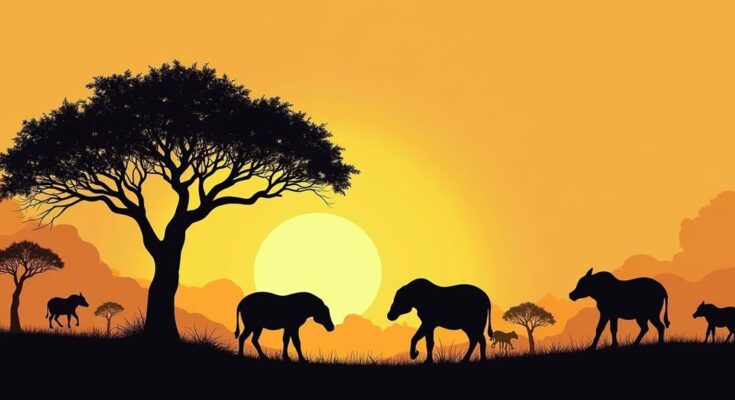As the 2030 target for the Sustainable Development Goals nears, global experts attribute only 17% achievement to climate change. Power structures are blamed for prioritizing deforestation, leading to increased poverty and violence, especially in Liberia. Good scientific practices are essential for transforming governance and achieving justice and progress.
As we approach the year 2030, only 17% of the Sustainable Development Goals (SDGs) have been achieved, prompting global experts to attribute this shortfall to climate change. They argue that adverse weather conditions are hindering efforts to meet these predetermined objectives, particularly affecting 95% of countries in the Global South. The current administration, however, has been accused of prioritizing deforestation over reforestation, using representatives such as the Secretary General of the United Nations to convene assemblies that deflect responsibility onto climate change for their failures in meeting sustainable development targets. Wealthy nations, including Saudi Arabia, have been described as enabling this narrative. Notably, musical artist Akon has reflected on this issue in his work, suggesting a widespread sentiment of misattribution of fault. Instead of assuming accountability, those in power continue to blame climate change, even as their actions contribute to environmental degradation. The situation in Liberia exemplifies this crisis; rampant deforestation has resulted in wildlife encroachment into local communities, devastating floods, and a significant loss of life. Additionally, the lack of infrastructure for education persists, exemplified by students sitting on the ground despite having access to some of the world’s finest timber species. This educational neglect obstructs the path to economic growth and perpetuates widespread poverty. Consequently, this entrenched poverty serves as a catalyst for violence, sometimes erupting into coups and civil conflicts. As per a 2022 Afrobarometer study, it is evident that many Liberians feel their nation is heading in an unfavorable direction, a sentiment echoed by the exacerbation of poverty both locally and globally, as discussed by Thomas Piketty in his 2022 publication. To terminate this downward spiral of poverty, it is imperative to favor good scientific practices over flawed methodologies. Good science helps foster awareness that empowers citizens to advocate for justice and reform the electoral system towards equitable representation. Only through this transformation can individuals with integrity emerge as leaders capable of instilling justice, leading to peace and progress in Liberia and beyond.
The article addresses the slow progress towards achieving the Sustainable Development Goals (SDGs) as the deadline of 2030 approaches, emphasizing the link between climate change and the failures of both global governance and local initiatives, particularly in countries like Liberia. It sheds light on the ongoing challenges of deforestation, the impacts of environmental degradation, and the associated social issues that arise from poverty, including violence and instability. The article argues for a shift towards responsible governance and informed electoral practices to alleviate these issues and foster development.
In conclusion, as the world inches closer to the 2030 deadline for the Sustainable Development Goals, it is essential to recognize the role of climate change alongside governance failures in hindering progress. The situation in Liberia illustrates how deforestation, lack of education, and poverty are interlinked, reinforcing a cycle of violence and civil unrest. Seeking accountability from governing bodies and embracing good scientific practices will be vital steps toward fostering a just society capable of achieving sustainable development and peace.
Original Source: frontpageafricaonline.com




